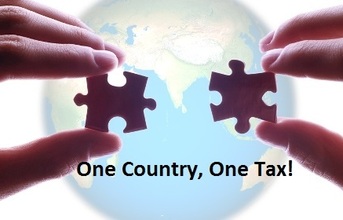
The Goods and Services Tax (GST) Council, in its meeting held recently in Vigyan Bhawan in New Delhi under the Chairmanship of the Union Minister for Finance & Corporate Affairs, Arun Jaitley has approved the draft CGST Bill and the draft IGST Bill as vetted by the Union Law Ministry.
This clears the deck for the Central Government to take these two Bills to the Parliament for their passage in the ongoing Budget Session.
Some of the main features of the two Bills, as finalized by the GST Council, are as follows:
i. A State-wise single registration for a taxpayer forfiling returns, paying taxes,and to fulfil other compliance requirements. Most of the compliance requirements would be fulfilled online, thus leaving very little room for physical interface between the taxpayer and the tax official.
ii. A taxpayer has to file one single return state-wise to report all his supplies, whether made within or outside the State or exported out of the country and pay the applicable taxes on them. Such taxescan be Central Goods and Services Tax (CGST), State Goods and Services Tax (SGST), Union Territory Goods and Services Tax (UTGST) and Integrated Goods and Services Tax (IGST).
iii. A business entity with an annual turnover of upto Rs. 20 lakhs would not be required to take registration in the GST regime, unless he voluntarily chooses to do so to be a part of the input tax credit (ITC) chain. The annual turnover threshold in the Special Category States (as enumerated in Article 279A of the Constitution such as Arunachal Pradesh, Sikkim, Uttarakhand, Himachal Pradesh, Assam and the other States of the North-East) for not taking registration is Rs. 10 lakhs.
iv. A business entity with turnover upto Rs. 50 lakhs can avail the benefit of a composition scheme under which it has to pay a much lower rate of tax and has to fulfil very minimal compliance requirements. The Composition Scheme is available for all traders, select manufacturing sectors and for restaurants in the services sector.
(Continued on the next page)


























